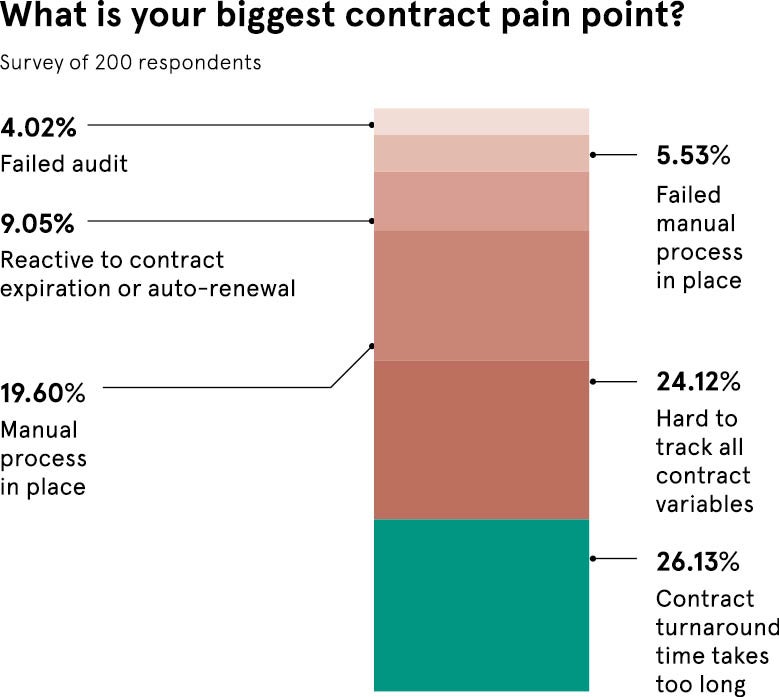When we founded Icertis in 2009, we disrupted the market with a cloud-based enterprise contract management platform that could handle any type of contract and integrate with enterprise business processes. Microsoft became our first customer, with 150,000 users in 170 countries.
Today we manage more than five million contracts for companies around the world. This gives us an enormous opportunity to gather and analyse data intelligently to help our customers unlock the hidden power of contracts and deliver value.
We recently announced our first AI applications: Icertis Contract Management (ICM) DigitizeAI and ICM DiscoverAI. These apps transform contracts from static documents into strategic assets, and unleash the power of AI in contract management by exploiting the unmatched quantity, quality and variety of data on our platform.
Customers are already benefiting from these new applications through features such as intelligent clause identification and attribute extraction, and a powerful data validation interface. They have used the apps to reduce time to digitise legacy and third-party contracts by up to 80 per cent, improve post-execution contract compliance by up to 90 per cent and discover new revenue opportunities in legacy contracts.
For example, global manufacturer and services provider Vertiv used the ICM AI apps to analyse its legacy sales contracts to enable deeper insights into risks and obligations.

Carmaker Daimler is working with Icertis to reduce cost, manage risk better and ensure compliance in the contracting process through ICM AI apps.
Until now, it has been prohibitively expensive, time consuming and risky for an enterprise to map accurately and at scale the attributes and clauses in legacy and third-party contracts to their semantic definitions. AI enables us to do it faster and better.
ICM DigitizeAI automatically imports legacy contracts in any format, then maps attributes and clauses to the enterprise’s structure, making the contracts easy to find, report on and analyse.
ICM DiscoverAI lights up third-party contracts by identifying clauses and attribute data, and matching them to a company’s clause library, providing instant visibility on contract components.
With deep integration to other commonly used applications such as Microsoft Word, contract managers also reap the benefits of AI from within their software of choice, increasing contract velocity, reducing risk, improving compliance and generating substantial commercial value.
An example of the power of AI infused in the ICM platform is in negotiations. It can analyse global data, for example on price, quality and features, discovering patterns that help users negotiate with suppliers and customers.
The ICM platform also uses blockchain digital ledger technology. Combining blockchain and ICM DiscoverAI technology enables a more transparent supply chain.
This ensures data privacy in general data protection regulations, ethical standards, such as the prevention of child and slave labour, and sustainable sourcing can be enforced across the supply chain. The technology can therefore improve regulatory compliance and data security, help companies protect their brands, and meet their sustainable and ethical sourcing goals, while keeping sensitive contract information confidential.
AI will unleash the potential of contract management. Many top businesses still have contracts dispersed in different locations and unmanaged. As they see the value of managing all their contracts from a central digital location, and turning them into strategic assets that participate in business processes with the help of AI, that will change quickly.
As we journey towards becoming the contract management platform of the world, I will leave the conclusion to our client BASF, the world’s largest global chemical producer, which says: “The Icertis platform’s ease of use and intelligent insights will help us optimise the value of our commercial relationships, increase contracting efficiencies, and help reduce contractual risk.”






